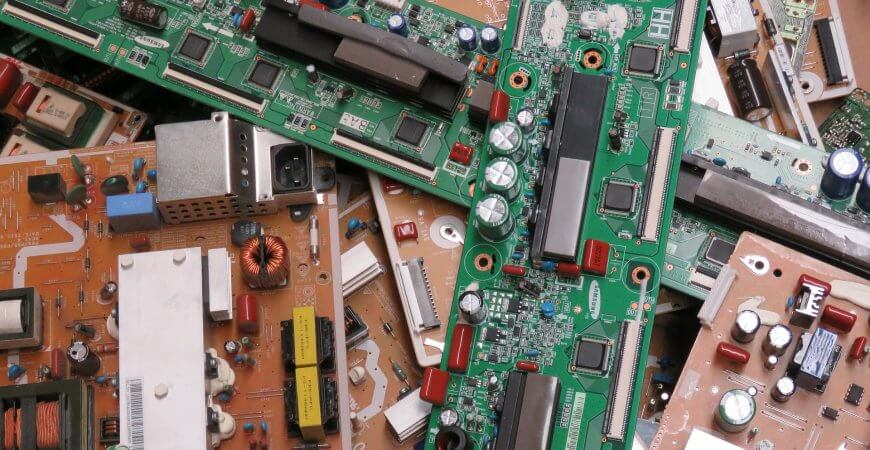

What is e-waste?
Electronic waste, or e-waste for short, is a product of modern times. It’s a problem we’ve never had to deal with before, and so not everyone is aware of how to deal with it. As the needs of the average consumer in terms of efficient electronic equipment grow, so too does the speed at which new electronics are acquired, while old ones are discarded.
The problem with e-waste
While the technological boom has certainly made people’s lives much easier than ever before, there’s no denying the fact that e-waste can be quite difficult to dispose of, and that’s mainly due to two main issues. The first one has more to do with the legality surrounding the safe disposal of end-of-life (EOL) electronics and e-waste – due to their often toxic content, in many places it is illegal to dispose of them together with regular waste. The other major issue relates to information. Information has become one of the biggest powers in recent years, and the amount of it that we use on a daily basis has increased significantly. With all our electronic devices utilising sensitive information, disposing of them in a way that would prevent any information leaks is particularly important.
What constitutes as e-waste?
As a general rule, e-waste encompasses all EOL electronic devices. These may include computer monitors, televisions, mobile phones, PCs, laptops, stereos, etc. It is important to note that the vast majority of the components constituting these devices can be recycled, but due to a general lack of awareness, many units of e-waste still end up on landfills.
Why you should recycle e-waste
There are a number of reasons why electronics recycling is so important.
- E-waste is a reliable source of raw material. It goes without saying that the manufacture of new electronic goods demands a great amount of valuable resources to manufacture. Instead of focusing on new resources, it is possible to obtain most of them from e-waste, as a large percentage of the precious metals used in them can be recycled – a far greater number than the percentage that is reused currently.
- E-waste is solid waste, adding to the amount that has existed before. That, combined with the fact that electronics have short life cycles and the fact that there are more electronic goods on the market than ever before, results in a substantial increase in the generation of solid waste. This can be reduced through more recycling.
- Many materials used in electronics are toxic. Substances like lead, mercury, chromium, cadmium, etc., should not be released into the environment, as they may negatively impact our surroundings and ourselves as a consequence. Recycling can help limit the exposure of the environment to these toxic substances.
